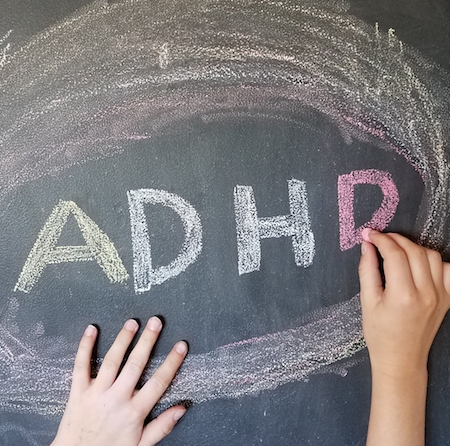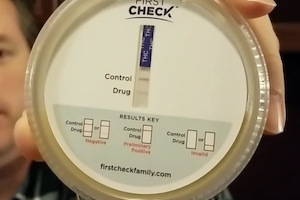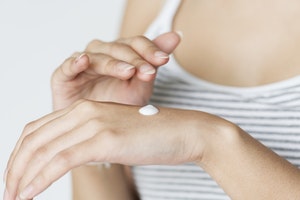How CBD Can Help Your Battle With ADHD?

Approximately 51 million individuals globally are estimated to struggle with attention deficit hyperactive disorder (ADHD.) The vast majority of these individuals are children. Not only are these children struggling with ADHD, but their parents, caregivers, and teachers are also struggling with how to help them. There are medications out there that doctors can prescribe but their effectiveness and side effects are not always favorable. Many people have wondered if turning to Cannabidiol (CBD) could be helpful.
Can CBD help with ADHD? For most people, the answer is YES. CBD is capable of helping those with ADHD find relief from anxiety as well as find greater ability to focus for longer periods of time. CBD accomplishes this by interacting with the endocannabinoid system which has many positive impacts on the central nervous system as well as other systems in our bodies.
Among all the positive health benefits CBD is proving to provide for individuals, ADHD is a big one. As you’ll read below, CBD appears to be a terrific option for children suffering from ADHD, and it appears to be very safe with very minor side effects.
What is ADHD
ADHD is a neurodevelopmental type of mental disorder that is most common in children but can be an issue for adults as well. Even though ADHD is a condition that has been around for a long time and has been studied extensively, what causes it is not exactly understood in most individuals. Symptoms include difficulty paying attention for any significant amount of time, an excessive level of activity/energy, and trouble controlling behavior that is not appropriate for the age of the individual. About 3 times more boys are diagnosed with ADHD than girls. About 50% of children who struggle with ADHD continue to struggle with at least some of the symptoms as an adult.
About 67% of children with ADHD also suffer from some other diseases. Some of these associated diseases are:
- Epilepsy
- Tourette’s Syndrome
- Anxiety
- Autism
- Obsessive-compulsive Disorder (OCD)
- Restless Leg Syndrome
- and several others…
Fortunately, CBD appears to be effective in many of these conditions as well. One interesting fact is that people with ADHD can show similar levels of focus/concentration as other people as long as they are interested in the topic at hand.
How CBD affects the endocannabinoid system
So the big question at this point is how CBD could possibly help with ADHD along with so many other symptoms associated with it. The human body consists of several different systems that regulate everything inside our bodies. Each of these systems plays an important role in our overall health. Of most importance for the topic of ADHD and CBD is the Nervous system. The nervous system is made up of two sub-systems called the central nervous system and the peripheral nervous system.
The central nervous system includes the brain and spinal column. This system is like “central command” for the body. It has influence over literally every part of the body. The peripheral nervous system consists of all the nerves outside of the spinal column and brain. It acts as a kind of messenger between the various parts of the body and the central nervous system. It carries messages two ways; from the parts of the body into the central nervous system as well as from the central nervous system out to the various parts of the body.
Why have I spent two paragraphs explaining the nervous system and it’s two sub-systems? Because it’s critical to understanding how CBD affects so many parts of the body. Science has fairly recently discovered another system in the body called the Endocannabinoid system in our bodies. This system consists of at least two types of receptors called CB1 and CB2. Receptors are basically proteins that respond to a chemical signal.
CB1 and CB2 receptors are located all throughout the central and peripheral nervous systems. Our bodies naturally produce molecules, known as endocannabinoids, that act as chemical messengers that bind to and influence CB1 and CB2 receptors. These endocannabinoids end up producing several positive effects in our body through CB1 and CB2.
Another system that has been recently discovered is called the Endocannabinoid system. This system plays a role in regulating many functions throughout the body including such things as anxiety, stress, immune system, energy balance, metabolism, memory, and appetite to name just a few. This is normally done through endocannabinoids our bodies produce naturally.
But research has found that cannabinoids, such as CBD, produced by cannabis plants can interact with CB1 and CB2 as well. These interactions help the endocannabinoids our bodies make, to do their various jobs better. How exactly they do this is not entirely understood, but their ability to influence the endocannabinoid system is well documented. This is why CBD can have such a broad influence on so many aspects of overall health.
But is CBD safe for children
 Legally I’m supposed to say “CBD should only be used in adults 18 years or older.”
Legally I’m supposed to say “CBD should only be used in adults 18 years or older.”
There… I’ve said it. Now, several studies have been completed in humans that demonstrate CBD is safe. In fact, the United State’s Food and Drug Administration (FDA) recently approved a CBD medication, Epidiolex, for the treatment of two rare forms of epilepsy in children and adults. The recommended dosage of Epidiolex is very high and well beyond the dosage needed to help with ADHD symptoms.
The World Health Organization (WHO) released a comprehensive report about CBD in June of 2018. This report discussed the safety of CBD and stated that across a number of clinical trials of the potential therapeutic benefits of CBD, it is generally well tolerated and has a good safety profile.
According to the available research and the fact that the FDA has approved CBD for use in humans, including children, there doesn’t appear to be any obvious or serious risks to CBD. In addition, it’s important to note that CBD is not a psychoactive drug like it’s cannabis counterpart THC. THC is a different cannabinoid that’s found mainly in marijuana and is responsible for getting people high. CBD on the other hand does not produce any mind altering effects or have any impact on motor skills, speed, coordination, or mental alertness.
So if you decide to purchase CBD oil for your child, make sure it does not contain any significant amount of THC in it.
Comparing CBD to other medications that may be prescribed
 The most commonly prescribed medication for ADHD is Methylphenidate, otherwise known as Ritalin. While Ritalin is typically well tolerated, there are several serious side effects listed. These include such things as agitation/restlessness, heart palpitations, changes in blood pressure and heart rate, rapid resting heart rate, blurred vision, depression, and confusion. There are lots more but these were just some of the more serious ones I picked to list.
The most commonly prescribed medication for ADHD is Methylphenidate, otherwise known as Ritalin. While Ritalin is typically well tolerated, there are several serious side effects listed. These include such things as agitation/restlessness, heart palpitations, changes in blood pressure and heart rate, rapid resting heart rate, blurred vision, depression, and confusion. There are lots more but these were just some of the more serious ones I picked to list.
There is evidence that prolonged use of Ritalin may slow down the rate of growth in children. While some of these may be rarer than others, and most children tend to tolerate Ritalin well, the possibility of serious side effects is certainly present.
CBD, on the other hand, does not affect any cardiovascular parameters such as heart rate or blood pressure. There have been no reports of vision problems. And CBD is known to help with depression, not cause it. The list of possible CBD side effects is much shorter and less severe than Ritalin, the most commonly prescribed medication for combating the symptoms of ADHD.
Starting with CBD: Where to buy and how much to take
If you’ve read this article and think you’d like to give CBD a try, the question now becomes how to start. The first thing you should do is talk with your doctor to make sure there aren’t any medical reasons why you shouldn’t consume CBD. Once you get the all clear, find a reputable dispensary or online store where you can buy a CBD product. Here’s an article we wrote that will walk you through the many options. Be sure to carefully read the directions of whatever product you buy.
Telling you how much to take is almost impossible. It will vary for every person. My best guidance is to start with a small dose for a week. This is simply to make sure you will tolerate CBD well. Then increase the dose slowly every few days until you achieve the desired results. You may want to take CBD twice a day, morning and evening. The goal is to use the smallest dose you can in order to achieve the results you desire. Mainly because CBD is expensive. Taking more than you need is just going to cost you more than it should.
Last comments
CBD is a promising treatment for ADHD. It won’t cure it but it should help treat the symptoms you’re dealing with in your child or an adult you know. All the available research says that CBD is safe as well as tons of people who have shared their experiences online.
We wish you the best in your health journey. If you end up using CBD to help with the symptoms of ADHD I would love to hear from you in the comments section below. Your story could help others as well.


